Politics
Global press freedom hits lowest in 50 years
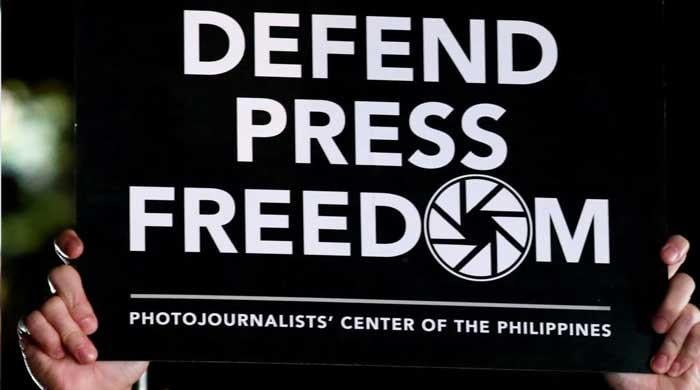
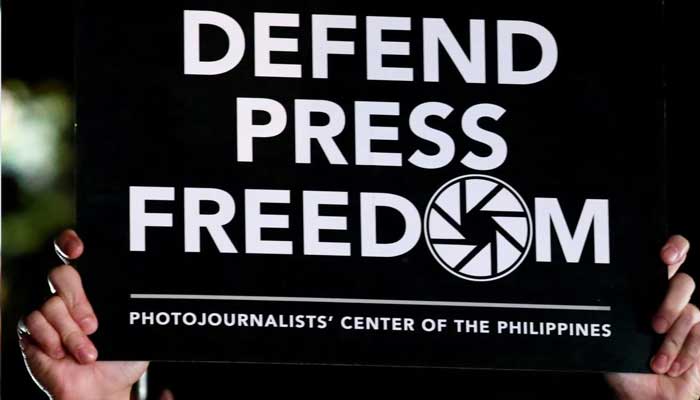
STOCKHOLM: Press freedoms worldwide have declined significantly over the past five years to hit their lowest level in 50 years, a report by a democracy think tank showed Thursday.
Afghanistan, Burkina Faso and Myanmar — already among the poorest performers in press freedoms — posted the biggest falls, the report by the Stockholm-based International Institute for Democracy and Electoral Assistance (IDEA) said.
The fourth-biggest drop was in South Korea, it added, citing “a spike in defamation cases initiated by the government and its political allies against journalists, and raids on journalists’ residences”.
“The current state of democracy in the world is concerning,” IDEA Secretary General Kevin Casas-Zamora, told AFP.
More than half of countries in the world (54%), registered a drop in one of the five key democracy indicators between 2019 and 2024, the report said.
“The most important finding in our report is the very acute deterioration in press freedom around the world,” Casas-Zamora said.
Between 2019 and 2024, it saw “the biggest drop over the past 50 years”.
“We’ve never seen such an acute deterioration in a key indicator of democratic health,” he said.
Press freedoms declined in 43 countries across all continents, including 15 in Africa and 15 in Europe.
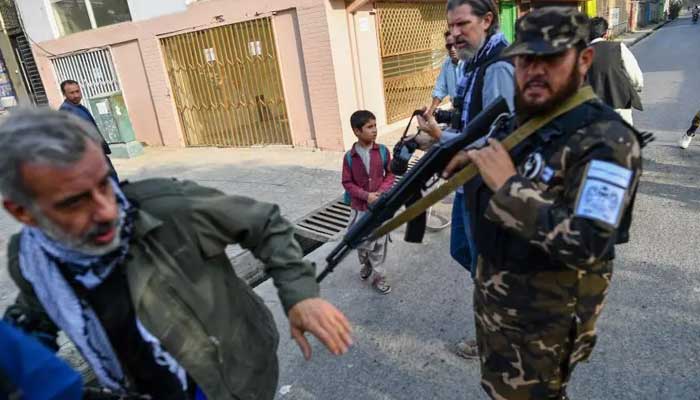
“There’s a toxic brew that is coming together, which involves, on the one hand, heavy-handed interventions on the part of governments,” some of them “legacies of what happened during the pandemic”.
On the other hand, “you have the very negative impact of disinformation, some of which is real disinformation and some of which is used as a pretext by governments to clamp down on press freedoms”.
The think tank is concerned about the consolidation of traditional media worldwide, as well as the “disappearance in many countries of local media which plays a very important role in supporting a democratic debate”, Casas-Zamora said.
The report only covers the period 2019 to 2024 and does not include the first effects of US President Donald Trump’s return to the White House in January.
But “some of the things that we saw during the election at the end of last year and in the first few months of 2025 are fairly disturbing”, Casas-Zamora said.
“Since what happens in the US has this ability to go global, this does not bode well for democracy globally,” he added.
Politics
Fire ravages Amsterdam church on ‘unsettled’ Dutch New Year
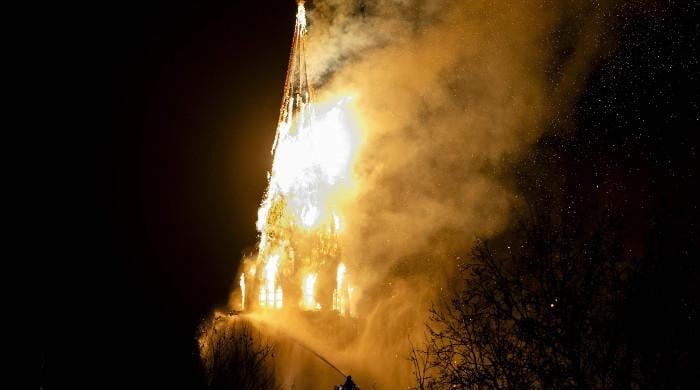
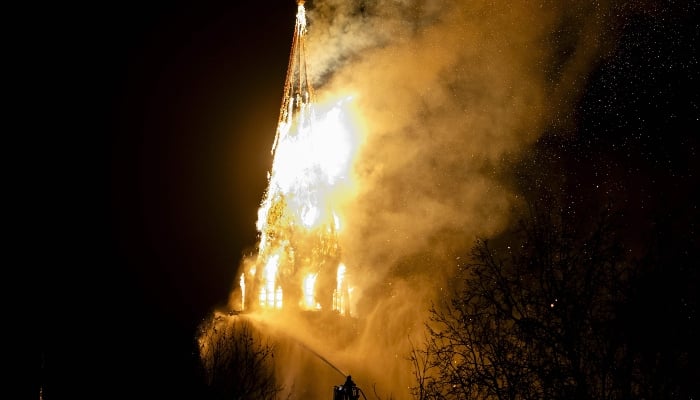
THE HAGUE: A huge inferno gutted a 19th-century Amsterdam church Thursday, as the Netherlands endured an unsettled New Year’s Eve with two dead from fireworks and “unprecedented” violence against police.
The blaze broke out in the early hours at the Vondelkerk, a tourist attraction that has overlooked one of the city’s top parks since 1872.
The 50-metre-high (164-foot) tower collapsed and the roof was badly damaged but the structure was expected to remain intact, Amsterdam authorities said.
The cause of the blaze was not immediately clear.
The head of the Dutch Police Union, Nine Kooiman, reported an “unprecedented amount of violence against police and emergency services” over New Year’s Eve.
She said she herself had been pelted three times by fireworks and other explosives as she worked a shift in Amsterdam.
Shortly after midnight, authorities released a rare country-wide alert on mobile phones warning people not to call overwhelmed emergency services unless lives were at risk.
Reports of attacks against police and firefighters were widespread across the country. In the southern city of Breda, people threw petrol bombs at police.
Two people, a 17-year-old boy and a 38-year-old man, were killed in fireworks accidents. Three others were seriously injured.
The eye hospital in Rotterdam said it had treated 14 patients, including 10 minors, for eye injuries. Two received surgery.
It was the last year before an expected ban on unofficial fireworks, so the Dutch bought them in massive quantities.
According to the Dutch Pyrotechnics Association, revellers splashed out a record 129 million euros ($151 million) on fireworks.
Some areas had been designated firework-free zones, but this appeared to have little effect.
An AFP journalist in such a zone in The Hague reported loud bangs until around 3am.
Politics
Higher US tariffs on imported furniture


Steeper US tariffs on some imported furniture items took effect Thursday, in a move that could add pressure on households already feeling the pinch from elevated costs of living.
The increase was planned under an earlier tranche of sector-specific tariffs imposed by President Donald Trump, as the US leader widened a slate of duties he has rolled out since returning to the White House.
Trump’s tariffs in 2025 have affected goods ranging from steel to autos, and more investigations — that could lead to even more levies — are underway.
In October, a 10-percent duty on imported softwood timber and lumber came into effect, along with a 25-percent duty on certain upholstered furniture and kitchen cabinets.
These tariffs, justified by the Trump administration as a means to boost US industries and protect national security, also included a planned increase come January 1, 2026.
Effective Thursday, the rate on certain upholstered furniture rises to 30 percent, while that on kitchen cabinets and vanities doubles to 50 percent.
The measure is likely to impact imports from countries like Vietnam and China, which have been key suppliers of imported furniture to the United States.
But the tariff levels for wood products from Britain will not exceed 10 percent, while those from the European Union and certain other trading partners who reached deals with Washington face a 15-percent ceiling.
Products subject to sector-specific tariffs are also not doubly hit by countrywide “reciprocal” levies that Trump has separately imposed, which are in some cases higher.
The Supreme Court is due to rule on the legality of these countrywide tariffs, imposed under the International Emergency Economic Powers Act.
But the high court’s eventual decision does not affect sector-specific duties.
Politics
Several dead in explosion at Swiss ski resort town Crans Montana


GENEVA: Several people were killed and others injured when an explosion ripped through a bar in the luxury Alpine ski resort town of Crans Montana, Swiss police said early Thursday.
“There has been an explosion of unknown origin,” Gaetan Lathion, a police spokesman in Wallis canton in southwestern Switzerland told AFP.
“There are several injured, and several dead.”
He said the explosion took place at around 1:30am (0030 GMT) in a bar called Le Constellation, which is popular with tourists, as revellers rang in the new year.
Images published by Swiss media showed a building in flames, and emergency services nearby.
“The intervention is still ongoing,” he said.
This is a developing story and is being updated with further details.
-

 Sports6 days ago
Sports6 days agoBrooks Koepka should face penalty if he rejoins PGA Tour, golf pundit says
-

 Business6 days ago
Business6 days agoGovt registers 144olive startups | The Express Tribune
-
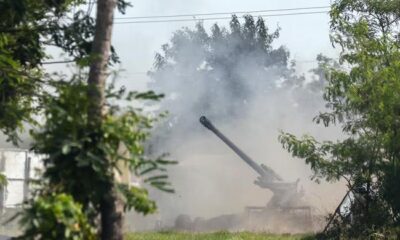
 Politics5 days ago
Politics5 days agoThailand, Cambodia agree to ‘immediate’ ceasefire: joint statement
-

 Politics6 days ago
Politics6 days agoHeavy rains, flash floods leave Southern California homes caked in mud
-

 Entertainment6 days ago
Entertainment6 days agoSecond actor accuses Tyler Perry of sexual assault in new lawsuit
-

 Fashion5 days ago
Fashion5 days agoClimate change may hit RMG export earnings of 4 nations by 2030: Study
-

 Entertainment6 days ago
Entertainment6 days agoInside royal families most private Christmas moments
-

 Entertainment1 week ago
Entertainment1 week agoVirat Kohli surpasses Sachin Tendulkar, setting new List A cricket record





